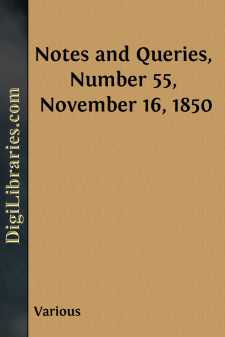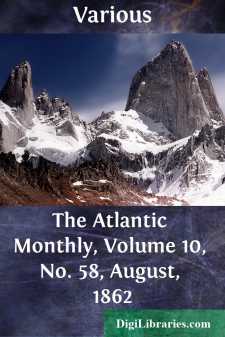Categories
- Antiques & Collectibles 13
- Architecture 36
- Art 48
- Bibles 22
- Biography & Autobiography 815
- Body, Mind & Spirit 144
- Business & Economics 28
- Children's Books 18
- Children's Fiction 14
- Computers 4
- Cooking 94
- Crafts & Hobbies 4
- Drama 346
- Education 58
- Family & Relationships 59
- Fiction 11829
- Games 19
- Gardening 17
- Health & Fitness 34
- History 1378
- House & Home 1
- Humor 147
- Juvenile Fiction 1873
- Juvenile Nonfiction 202
- Language Arts & Disciplines 89
- Law 16
- Literary Collections 686
- Literary Criticism 179
- Mathematics 13
- Medical 41
- Music 40
- Nature 179
- Non-Classifiable 1768
- Performing Arts 7
- Periodicals 1453
- Philosophy 65
- Photography 2
- Poetry 896
- Political Science 203
- Psychology 44
- Reference 154
- Religion 515
- Science 126
- Self-Help 85
- Social Science 82
- Sports & Recreation 34
- Study Aids 3
- Technology & Engineering 59
- Transportation 23
- Travel 463
- True Crime 29
Our website is made possible by displaying online advertisements to our visitors.
Please consider supporting us by disabling your ad blocker.
Notes and Queries, Number 55, November 16, 1850
by: Various
Categories:
Description:
Excerpt
NOTES.
AUTHORSHIP OF "HENRY VIII."
In returning to the question of the authorship of Henry VIII., I am anxious to remove a misconception under which MR. SPEDDING appears to labour relative to the purport of a remark I made in my last communication to you (Vol. ii., p. 198.) on this subject. As we appear to be perfectly agreed as to the reasons for assigning a considerable portion of this play to Fletcher, and as upon this basis we have each worked out a result that so exactly coincides with the other, I conclude that MR. SPEDDING, as well as myself, has rested his theory solely on positive grounds; that is, that he imagines there is strong internal evidence in favour of all that he ascribes to this writer. It follows, therefore that the "third hand" which he thought he detected must be sought rather in what remained to Shakspeare, than in that which had been already taken from him. I never for an instant doubted that this was MR. SPEDDING's view; but the inequality which I supposed he had observed and accounted for in this way, I was disposed to refer to a mode of composition that must needs have been troublesome to Shakspeare. The fact is, that, with one or two exceptions, the scenes contributed by the latter are more tamely written than any but the earliest among his works; and these, different as they are, they recalled to my mind. But I have no doubt whatever that these scenes were all written about the same time; my feeling being, that after the opening Shakspeare ceased to feel any great interest in the work. Fletcher, on the other hand, would appear to have made a very great effort; and though some portions of the work I ascribe to him are tedious and overlaboured, no censure would weigh very strongly against the fact, that for more than two centuries they have been applauded as the work of Shakspeare.
As to the circumstances under which Henry VIII. was composed, it is an exceedingly difficult question; and if I venture, on the present occasion, to give the impression upon my mind, I do so, reserving to myself the full right to change my opinion whenever I shall have acquired more knowledge of the subject, or, from any other motive, shall see fit to do it. I consider this case, then, as one of joint authorship; in point of time not much later than the Two Noble Kinsmen, and in other respects similar to that play. If the conclusions of the article in the Westminster Review, to which MR. SPEDDING alludes, be accepted, the writer of the introductory notice to Henry VIII. in the Illustrated Shakspeare, published by Tyas, will recognise the "reverent disciple" whom he hints at, but does not name. In short, I think that Fletcher was the pupil of Shakspeare; and this view, it appears to me, demands the serious attention of the biographer who next may study or speculate upon the great poet's life.
I don't know that I can add anything to MR. SPEDDING'S able analysis of Henry VIII. There are certain tricks of expression he, no doubt, has observed that characterise Fletcher's style, and which abound in the play....












